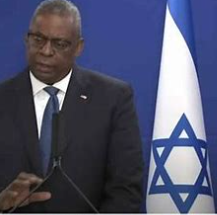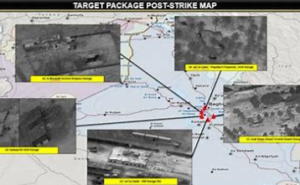On Monday, 25 December, a drone attack in northern Iraq resulted in injuries to three U.S. servicemembers. This assault was reportedly the work of militia groups backed by Iran. Among the injured, one U.S. troop was critically wounded.

In response to a drone attack in northern Iraq that injured three U.S. servicemembers, President Biden ordered the U.S. military to conduct retaliatory strikes against Iranian-backed militia groups. Adrienne Watson, spokeswoman for the National Security Council, reported that one of the U.S. troops sustained critical injuries in the attack, which was claimed by the Iranian-backed militia Kataib Hezbollah and its affiliates.
President Biden’s immediate action on the attack

While spending Christmas at Camp David, Maryland, President Biden was informed about the attack by White House national security adviser Jake Sullivan. He then instructed the Pentagon and his top national security aides to prepare options for responding to the attack on Erbil Air Base.
Attack on Kataib Hezbollah militants
After consulting with Defense Secretary Lloyd Austin and reviewing options with his deputy national security adviser, Jon Finer, and other top aides, President Biden decided to target three locations used by Kataib Hezbollah and its affiliates. The U.S. strikes were executed at around 4:45 a.m. on Tuesday in Iraq, less than 13 hours after the U.S. personnel were attacked. According to U.S. Central Command, the retaliatory strikes “destroyed the targeted facilities and likely killed several Kataib Hezbollah militants.”

Statement by officials
Adrienne Watson, spokeswoman for the National Security Council emphasized that “The President places no higher priority than the protection of American personnel serving in harm’s way,” and added that “The United States will act at a time and in a manner of our choosing should these attacks continue.”
In a statement, Defence Secretary Lloyd Austin said, “While we do not seek to escalate the conflict in the region, we are committed and fully prepared to take further necessary measures to protect our people and our facilities.”
Why did Biden take this step?

This latest attack on U.S. troops is part of a series of escalating threats and actions against American forces in the region since the Oct. 7 Hamas attack on Israel that ignited a devastating war in Gaza. The dangerous tit-for-tat strikes have escalated since Iranian-backed militant groups under the umbrella group called the Islamic Resistance in Iraq and Syria began attacking U.S. facilities on Oct. 17.
The U.S. has also held Iran, which has funded and trained Hamas, responsible for attacks by Yemen’s Houthi militants against commercial and military vessels in a critical shipping choke point in the Red Sea.
U.S. into the Israel-Hamas because of the attack in northern Iraq

The Biden administration has been striving to prevent the Israel-Hamas war from spiraling into a broader regional conflict that could either open up new fronts of Israeli fighting or draw the U.S. directly into the conflict. The administration’s measured response, where not every attack on American troops has been met with a counterattack, has drawn criticism from Republicans.
The U.S. has thousands of troops in Iraq training Iraqi forces and combating remnants of the Islamic State group, and hundreds in Syria, mostly on the counter-IS mission. They have come under dozens of attacks, none of which have been fatal so far, since the war began on Oct. 7, with the U.S. attributing responsibility to Iran-backed groups.
Tension in sea
The war is ongoing between Israel-Hamas affects the world in many ways but the supporters of Hamas are creating distress in the trade ways and that is the cause of tension and anger in many countries. Any nation or individual is free to support anyone but causing problems for others cannot be termed suitable. The attacks are on innocents and losses are faced by them. They are doing their part of the jobs.












Comments 2